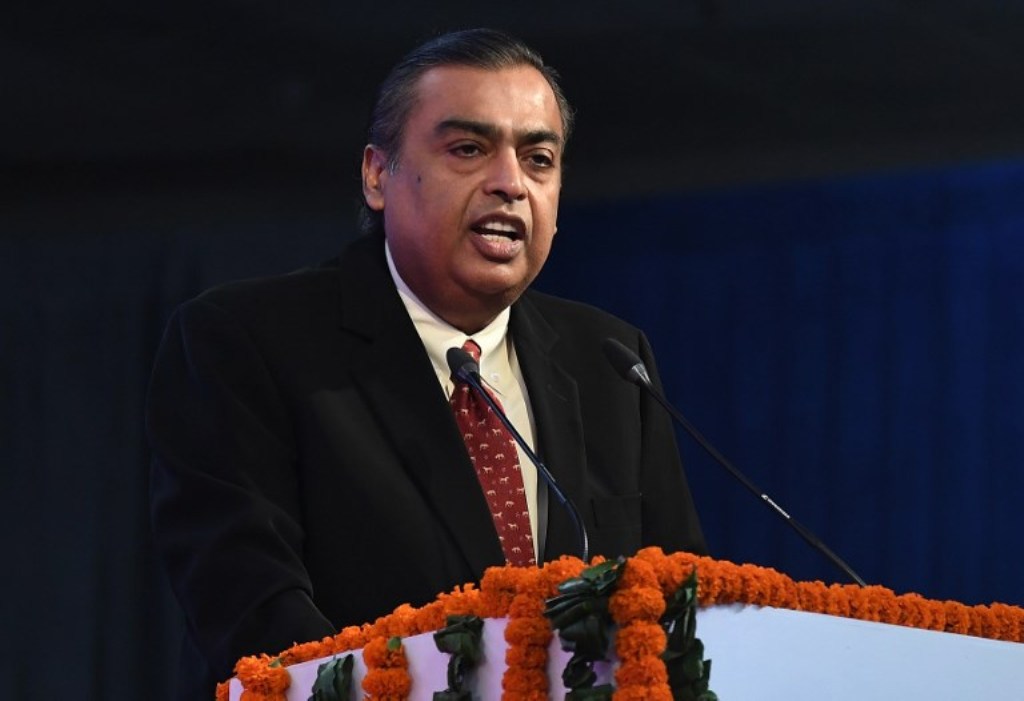(ATF) Reliance Industries Chairman Mukesh Ambani vaulted to the fifth position on the Forbes global list of billionaires even as his oil-to-telecoms conglomerate continues to stitch partnerships with other international giants and adding to its cash hoard.
Shortly after his elevation in the rankings, reports emerged that Amazon.com Inc., owned by the world’s richest man Jeff Bezos, is in preliminary talks to acquire a 9.9% stake in Reliance Industries’ retail arm.
A Reliance spokesman declined comment when contacted by Asia Times Financial. Reliance has raised around $20 billion since late April for its digital business from Alphabet Inc’s Google and Facebook Inc.
Ambani, who is now worth $77 billion, is locked in a fierce battle with Amazon and Walmart for a share of India’s e-commerce market, and Thursday’s report makes the situation very keenly poised.
READ MORE: India’s richest man takes on Amazon, Walmart in e-commerce gamble
The mogul has long trumpeted his ambition to revolutionise retail in the country of 1.3 billion by convincing farmers and shopkeepers to sell their goods on his new JioMart platform, launched this year.
India’s e-commerce business is seen growing to nearly $100 billion in the next four years with half of some market segments seen controlled by Reliance.
“We forecast India e-commerce will reach $ 99 billion by 2024, growing at a 27% CAGR over 2019-24, with grocery and fashion/apparel likely to be the key drivers of incremental growth in our view,” Goldman Sachs said in the report.
This would be driven by the doubling of online penetration of the retail sector. That reach is seen jumping to 10.7% by 2024 from the current 4.7%.
“The biggest near-term theme in India internet, in our view, is the foray of Reliance Industries (India’s largest market-cap company with presence across sectors such as energy, telecom, and retail) into e-commerce, and the company’s tie-up with WhatsApp for online grocery,” Goldman Sachs said.
Supply-chain challenges
But modernising India’s creaky, inefficient supply chains will not be easy, even for Reliance, the nation’s largest retailer by revenue with a portfolio including supermarkets, electronics stores and fast-fashion outlets.
Earlier this month, Google became the latest Silicon Valley player to invest in the digital unit of the Indian oil-to-telecoms juggernaut, following in the footsteps of Facebook and Intel.
These votes of confidence notwithstanding, Ambani’s success will depend on India’s mom-and-pop stores and their ability to adapt to the demands of an online business, analysts say.
Keeping bargain-hungry consumers satisfied in a fiercely contested market may be even harder.
But growth is booming.
Goldman Sachs said online grocery has been growing at over 50% year-on-year for the last couple of years, but with the outbreak of COVID-19 resulting in shift to online, and the recent entry of Reliance, the growth will accelerate to 81% CAGR during 2019-24.
Grocery in India is a $380 billion market and is expected to be the main driver of e-commerce over the next 4 years.
























